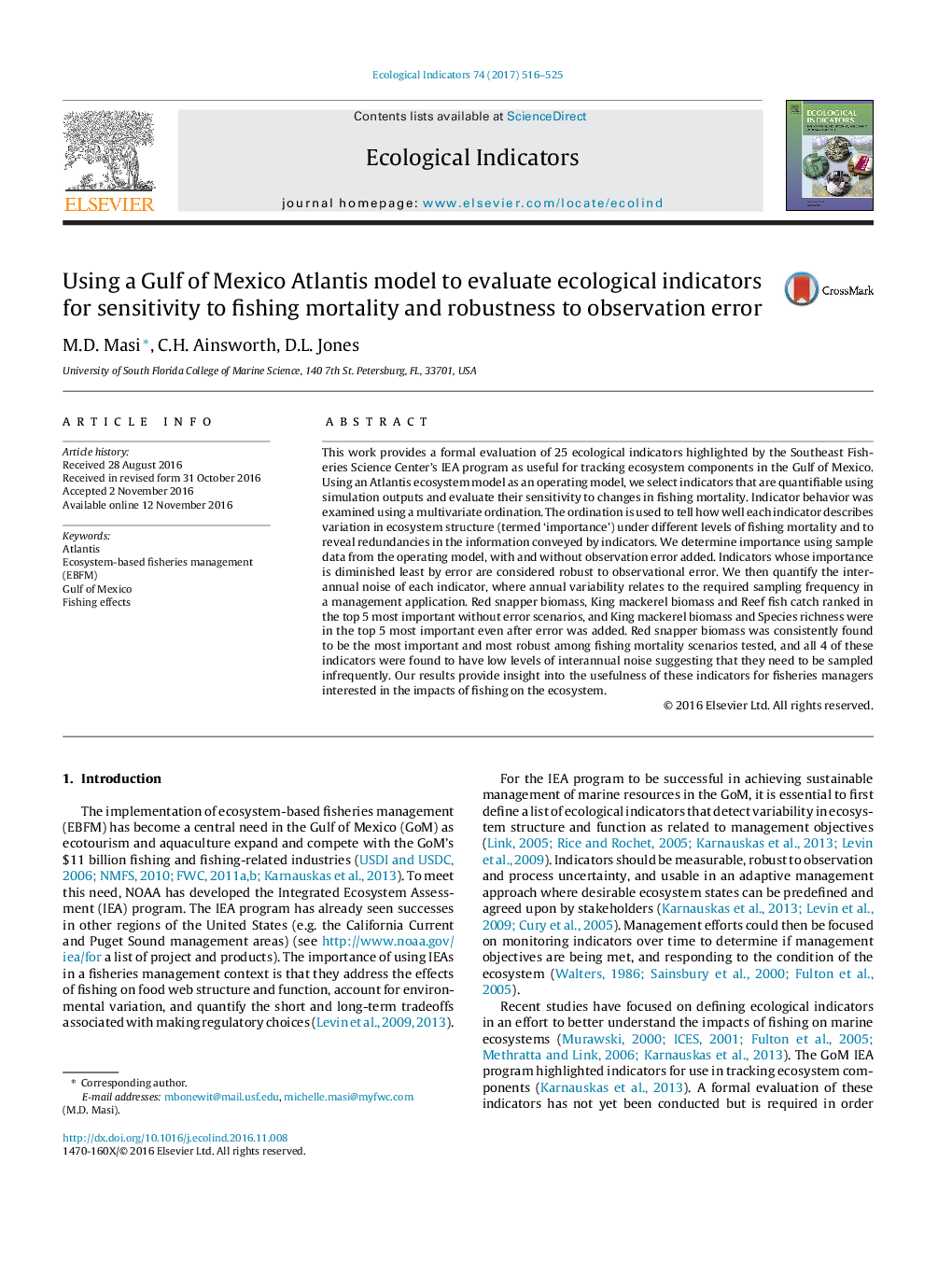| کد مقاله | کد نشریه | سال انتشار | مقاله انگلیسی | نسخه تمام متن |
|---|---|---|---|---|
| 5741875 | 1617128 | 2017 | 10 صفحه PDF | دانلود رایگان |
- 19 of the original 25 indicators were found to be sensitive to variable fishing mortality.
- Forage fish and Menhaden age structure indicators were redundant with each other.
- Indicators explaining most of the variability in the PCAs remained 'important' even with error.
- 7 indicators were found to be consistently 'robust' to error among all 3âF scenarios evaluated.
This work provides a formal evaluation of 25 ecological indicators highlighted by the Southeast Fisheries Science Center's IEA program as useful for tracking ecosystem components in the Gulf of Mexico. Using an Atlantis ecosystem model as an operating model, we select indicators that are quantifiable using simulation outputs and evaluate their sensitivity to changes in fishing mortality. Indicator behavior was examined using a multivariate ordination. The ordination is used to tell how well each indicator describes variation in ecosystem structure (termed 'importance') under different levels of fishing mortality and to reveal redundancies in the information conveyed by indicators. We determine importance using sample data from the operating model, with and without observation error added. Indicators whose importance is diminished least by error are considered robust to observational error. We then quantify the interannual noise of each indicator, where annual variability relates to the required sampling frequency in a management application. Red snapper biomass, King mackerel biomass and Reef fish catch ranked in the top 5 most important without error scenarios, and King mackerel biomass and Species richness were in the top 5 most important even after error was added. Red snapper biomass was consistently found to be the most important and most robust among fishing mortality scenarios tested, and all 4 of these indicators were found to have low levels of interannual noise suggesting that they need to be sampled infrequently. Our results provide insight into the usefulness of these indicators for fisheries managers interested in the impacts of fishing on the ecosystem.
Journal: Ecological Indicators - Volume 74, March 2017, Pages 516-525
